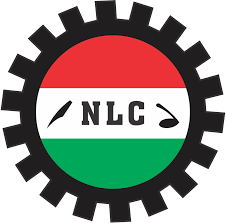Agriculture
FAO Distributes Training Materials to Agric Extension Workers in Benue

Thé United Nations Food and Agriculture Organisation (FAO) has distributed 15 training materials to 20 agricultural extension workers in Benue to support its step-down training in the state.
The organisation’s Focal Person for the training in Benue, Mr Frank Azuu, said this on Wednesday in Makurdi, while distributing the items to the workers drawn from various government ministries in the state.
Azuu, who is also the Senior Special Assistant on Special Duties to Gov. Samuel Ortom, said the measure was intended to facilitate the step-down training for farmers and herders in Guma, Makurdi, Logo and Kwande Local Government Areas (LGAs).
He said the LGAs were selected because of their volatility to farmers/herders conflicts in the state.
The News Agency of Nigeria (NAN) reports that the items included fertilizers, premix, trays, cement, plastic buckets, bowls, molasses and stickers.
The governor’s aide said the items were meant for the step-down training in the LGAs selected for the pilot scheme.
He said the extension workers had already been trained by facilitators from FAO during the ground-breaking, mobilisation and sensitisation phase.
Azuu said the participants, mostly extension workers, were trained in methods of promoting peaceful coexistence between herders and other land users to avoid conflicts.
He said they were also taught the strategies for harmonious coexistence by exploring alternative feedstock methods to guarantee food sufficiency.
Azuu said the 20 agents were expected to step down the FAO training on “Alternative Feedstock and Value Chains” in the herders/farmers crisis affected areas of the state.
He said the exercise, which began on February 12, with the training of extension workers in Makurdi, was expected to end on March 5.
Speaking to NAN, Mr Abraham Mbaakaa, an agent and extension worker, said the training would provide beneficiaries the opportunities to boost their economy and gurranttee peace among the communities.
Earlier, the FAO consultant attached to the training in the state, Mr Idris Gabdo, said the organisation had a fool-proof mechanism of monitoring the training.
Gabdo said the state government was made an implementing partner with the extension workers in each of the pilot states.
“The whole idea is for the state to provide the enabling environment for the project to succeed and also assist in tracking the participants to their locations.
“We also have a platform where we record feedback from the participants.
“They report their activities with pictures and we use the Global Positioning System to monitor their exact locations as well,” Gabdo said.
He said the aim of the project was to promote food sufficiency through enhanced cordial relationship between herders and farmers in rural communities. (NAN)
Agriculture
NNPC Foundation Empowers Vulnerable Farmers in Oyo, Osun

No fewer than 500 farmers on Tuesday benefited from the NNPC Foundation agricultural training initiative for vulnerable farmers in Osun and Oyo States.
The training, marking the flag-off in the South-West zone of Nigeria, was held at the Ilora Baptist Grammar School, Ilora, Oyo State.
The foundation manages the Corporate Social Responsibility (CSR) initiatives of NNPC Limited, focusing on education, health, environment and energy access to communities nationwide.
The Managing Director of the foundation, Mrs Emmanuella Arukwe, said the initiative demonstrated the commitment to food security and economic empowerment for Nigerian farmers.
Arukwe, who was represented by Dr Bala David, the foundation’s Executive Director, Programme Development, said the project aimed to build resilience, boost productivity and promote sustainable agriculture.
“We are training 6,000 farmers across six zones in climate-smart practices, modern techniques, quality inputs, and market access,” she said.
She, therefore, urged farmers to participate actively and embrace the opportunity to help secure Nigeria’s food and economic future.
Mr Olasunkanmi Olaleye, Oyo State Commissioner for Agriculture and Rural Development, commended NNPC Foundation for the training and empowerment programme.
Olaleye, who was represented by Mr Olusegun Ezekiel, the ministry’s Director of Regulation and Enforcement, said empowering vulnerable farmers was crucial in addressing national food security challenges.
He added that the initiative aligned with Oyo State’s agricultural transformation agenda of Gov. Seyi Makinde.
“We remain committed to supporting initiatives that uplift farmers and improve productivity and livelihoods,” Olaleye said.
He encouraged participants to make the most of the training opportunity to improve their practices.
He also called for future collaboration between the foundation and the ministry to achieve greater impact.
The training consultant, Prof. Daniel Ozok, described vulnerable farmers as smallholders with an under-five-hectare farm size, mainly made up of women, youth, and the elderly.
“These farmers are most affected by climate shocks, hence the need for focused training,” Ozok said.
According to him, training equips them with modern techniques and strategies for improved productivity and market access.
Some of the participants expressed gratitude to NNPC Foundation and promised to apply the knowledge gained from the training.
NAN reports that a medical screening exercise was organised by the foundation for participants on the sidelines of the training.
Training initiative would later be held for farmers in Ekiti and Ondo States on a date different from that of Ogun and Lagos States. (NAN)
Agriculture
NNPC Foundation Reiterates Commitment to Ensuring Food Security

The Nigerian National Petroleum Corporation (NNPC) Foundation has renewed its commitment to ensuring food security in the country.
Mrs Emmanuella Arukwe, Managing Director, NNPC Foundation, said this on Wednesday in her remarks during the training of vulnerable farmers in Akwa Ibom.
Arukwe said that 6, 000 farmers across the country would be trained on modern farming methods and market access strategies to boost food production in the country.
Arukwe, who was represented by Dr Bala David, Executive Director, Programme Development and Coordinator, NNPC Foundation, added that the Foundation was dedicated to implementing impactful programmes that aligned with national priorities.
She said that more than 500 farmers in Akwa Ibom were trained by the NNPC Ltd Agricultural Training Initiative for Vulnerable Farmers on modern methods and strategies to boost food production.
Arukwe added that the farmers were drawn from the state’s 31 local government areas to participate in the training to equip them with techniques and market access strategies to add value to their businesses.
“This programme is a testament to our unwavering commitment to food security, economic empowerment and national development.
“As the corporate social responsibility arm of NNPC Ltd, the Foundation is dedicated to implementing impactful programmes that align with national priorities.
“This initiative is part of our broader efforts to support the Federal Government’s agricultural transformation agenda, which seeks to enhance food security, increase productivity, and improve the livelihoods of smallholder farmers.
“Our goal is to equip every participant with the tools, knowledge, and resources needed to transition from subsistence farming to commercial-scale production,” Arukwe said.
In her remarks, Dr Offiong Offor, Commissioner for Agriculture and Rural Development, Akwa Ibom, thanked NNPC for the initiative to equip farmers with knowledge on modern farming.
Offor, represented by Dr Atim Okoko, Permanent Secretary, Ministry of Agriculture and Rural Development, said that a nation that trained farmers was a nation that would not go hungry.
“I want to express the state government’s appreciation to NNPC for mounting this laudable programme.
“A nation that starts to train farmers, a nation that starts to look at farmers will never go hungry.
“In this season that our President Bola Tinubu has come up with his Renewed Hope Agenda, everything is to end hunger in Nigeria,” Offor said.
The commissioner added that the programme came to complement what the state government was doing to ensure food sufficiency.
Responding on behalf of farmers, Mr Bassey Inwang, State Chairman, All Farmers Association of Nigeria (AFAN) said farmers in the state were so grateful for the training.
Inwang said the training would boost food production in the state, as the farmers would apply the knowledge gained on their farms for increase in yields.
He said, “We want to tell you that we will not take this training for granted, we will apply it properly on our farms.” (NAN)
Agriculture
FG Trains 120 Youths On Poultry Farming In Plateau

The Federal Government has commenced free six months training for 120 Plateau youths on poultry farming.
The training is through the National Youth Skills Acquisition Fund (NYESAF), under the Innovation, Development and Effectiveness in the Acquisition of Skills (IDEAS) Project.
Dr Daniel Jarafu, Chief Executive Officer (CEO) VetVille Nigeria Limited, one of federal government’s training service providers in charge of the training, said this on Saturday in Jos, at the flagoff of the programme.
Jarafu, said the project was a deliberate effort by the federal government to empower youths with skills that would make them skillful, self sufficient, employers of labour and in turn, boost economic growth of the nation.
According to him, the six months training is segmented into three months theoretical and three months practical aspects .
He further explained that at the end of the programme the trainees would sit for the National Skills Qualifications (NSQs) examination to earn a national certification which would be equivalent to certification earned in the formal education system.
Earlier, Prof. Arhyel Balami, the Guest of Honour, said the initiative by the federal government was highly laudable as it would lead to the empowerment of youths with hands on agricultural skills that would make them productive with sustainable livelihoods.
Balami, urged the trainees to make the best use of the training by being diligent, showing up and paying rapt attention during the course of the training.
The News Agency of Nigeria (NAN) reports that NYESAF is to train 75,000 youths nationwide, with the aim of enhancing job creation, entrepreneurship, and economic independence among young Nigerians.
NAN further reports that initiative underscores the government’s commitment to equipping youths with essential skills to drive economic growth and self-sufficiency



























